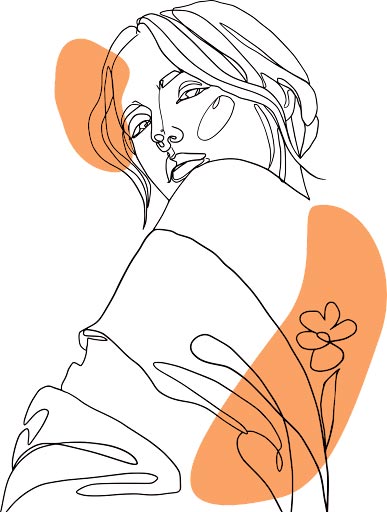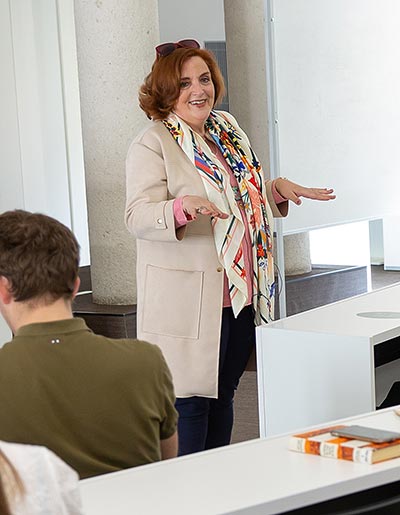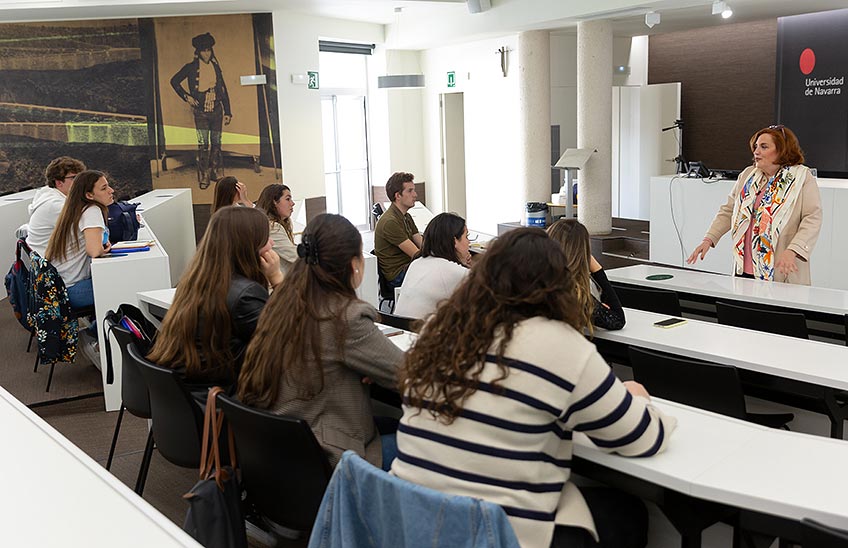Think
Women's leadership skills: Cristina Cuesta
Cristina Cuesta, director of the Miguel Ángel Blanco Foundation, gave the closing session of the first edition of the Women's Leadership Skills cycle. goal The initiative was promoted last October by Blanca Ezponda, Eva Ifante and Ana Paula López, students of the Degree in Philosophy, Politics and Economics (PPE) of the School of Philosophy and Letters, with the aim of bringing young university students closer to female references in different fields and professions. Ana Paula López signature the chronicle of this last meeting.

Last Friday, 29 April, the farewell of this first edition of the Women's Leadership Skills Cycle took place with the guest speaker Cristina Cuesta, director of the Miguel Ángel Blanco Foundation. Cuesta is a woman who is concerned about the injustices committed by terrorism. A concern that leads her to fight every day, becoming a leader in her field of work.
 But what is a good leader? Is it a leader who expresses his ideas in front of a crowd, or is it a leader who seeks solutions to relevant problems? Being a good leader can have various conceptions. For our guest, however, it is not only the act itself, but also the process that enables you to become a leader. To become a leadership figure you have to be able to use skills such as knowledge, reasoning and courage. You need a head to be able to reason, to ask yourself what problem you want to solve. To question the why, the how and the where of the problem. In this way, anyone who wants to be a leader is confronted with conflict for the first time.
But what is a good leader? Is it a leader who expresses his ideas in front of a crowd, or is it a leader who seeks solutions to relevant problems? Being a good leader can have various conceptions. For our guest, however, it is not only the act itself, but also the process that enables you to become a leader. To become a leadership figure you have to be able to use skills such as knowledge, reasoning and courage. You need a head to be able to reason, to ask yourself what problem you want to solve. To question the why, the how and the where of the problem. In this way, anyone who wants to be a leader is confronted with conflict for the first time.
After the first questions have been asked, the second part of the leadership process appears: reasoning. Once you have clarity of mind and know what you want to do, the most important task of the leader is to use your courage. One must not be afraid of confrontation, confrontation and consequences. Courage serves as tool that drives ideas, concepts or solutions to transcend.
The leader is not a leader unless he or she uses these capacities, mainly because being a leader is more of a process than a result. In addition, Cristina wanted to emphasise an essential point, and that is to remember that things are not done in solitude, but that there is always a network of people willing to show support.
Throughout the Women's Leadership Skills cycle, the different conceptions of what the speakers considered to be leaders were revealed. Conceptions that have varied in their definition, but that have remained faithful to what Cuesta called the three Cs (Head, knowledge and Courage). All our guests concluded that the most important thing is to find the reason to be a leader today. Being a leader today is no longer just about knowing how to speak in public or to state a conviction, but also about understanding the process.
In conclusion, we can see how each of the speakers has experienced the process of leadership transformation in different ways. They all represent the aspiration to be able to achieve the same goal. In each of us lives a leader, a woman who transmits knowledge through conviction, courage and bravery. That is true women's leadership.

If you liked the article, you might be interested in one of our Degrees!









